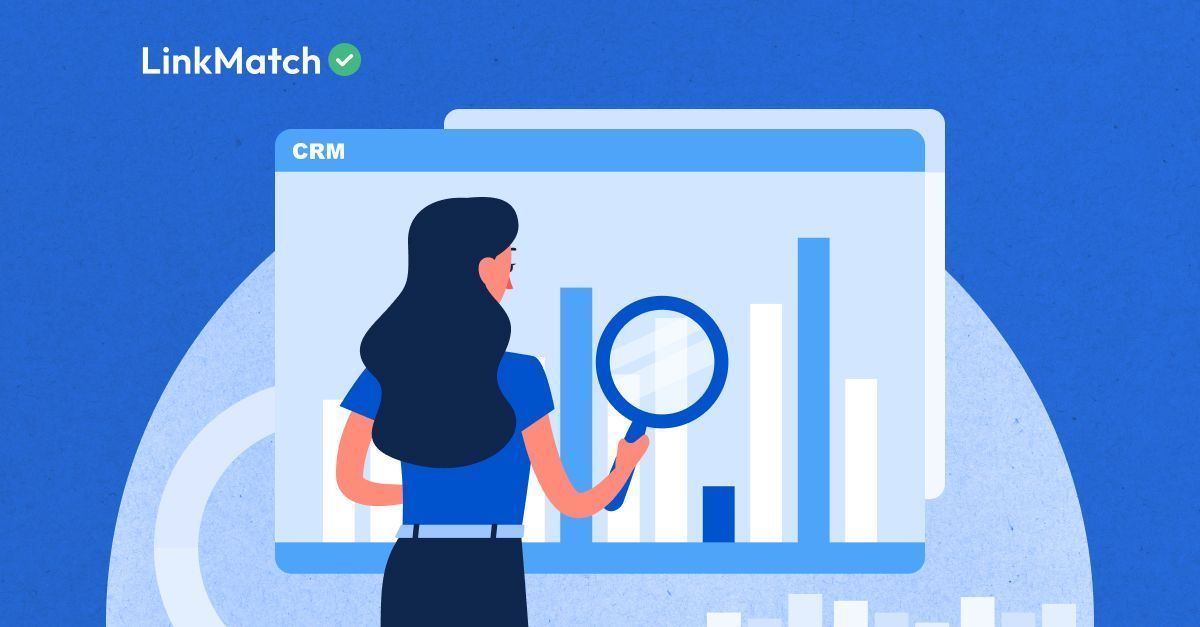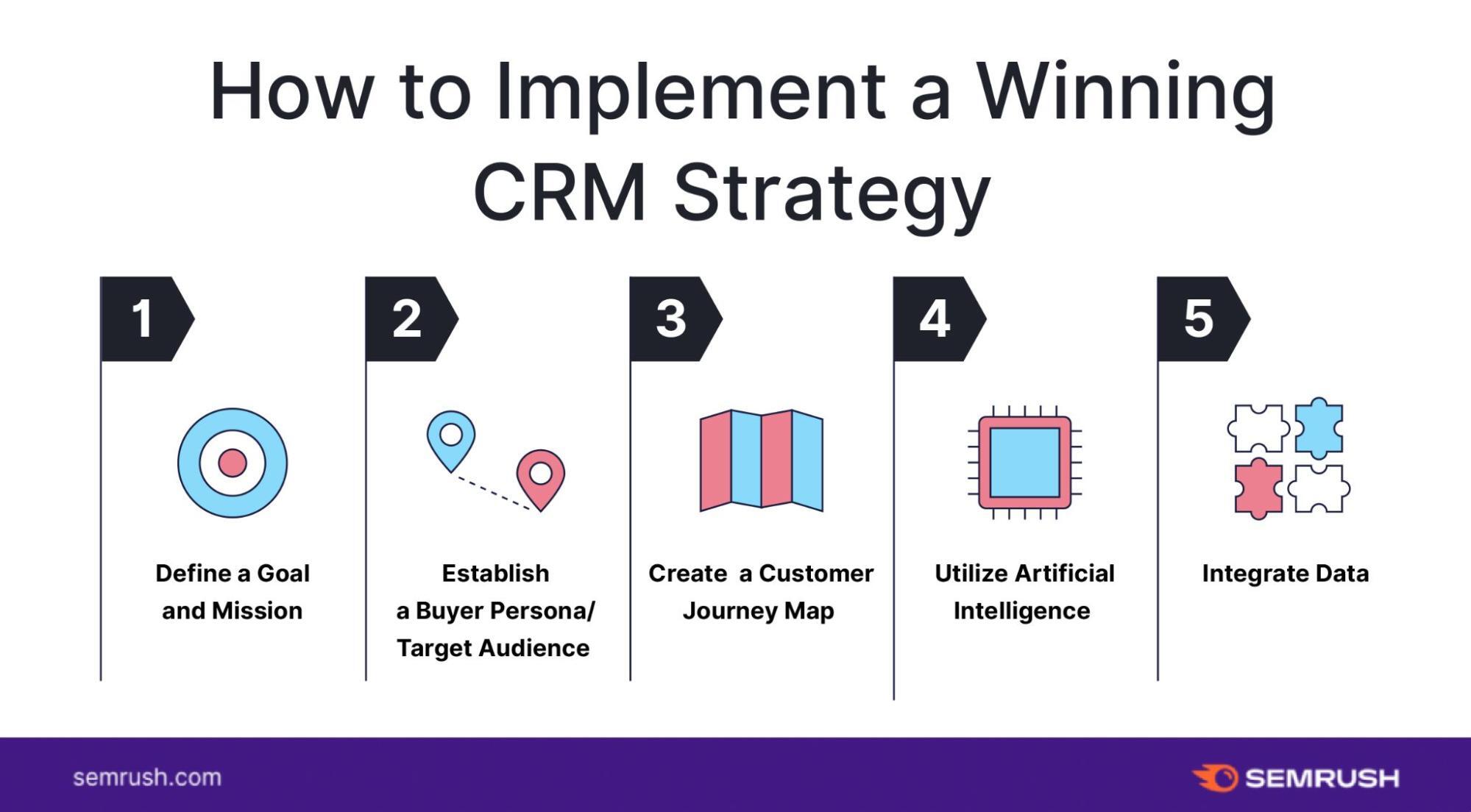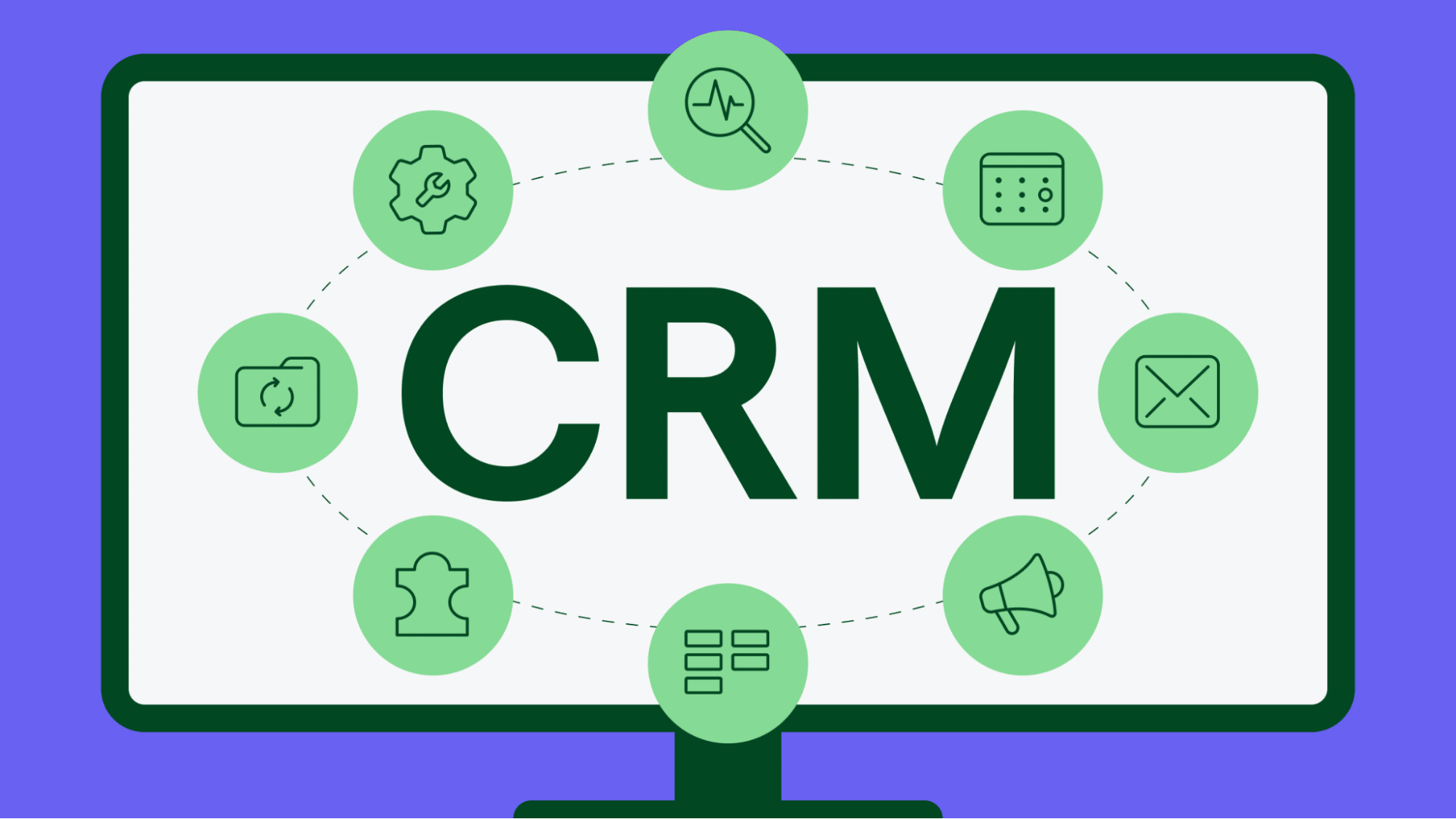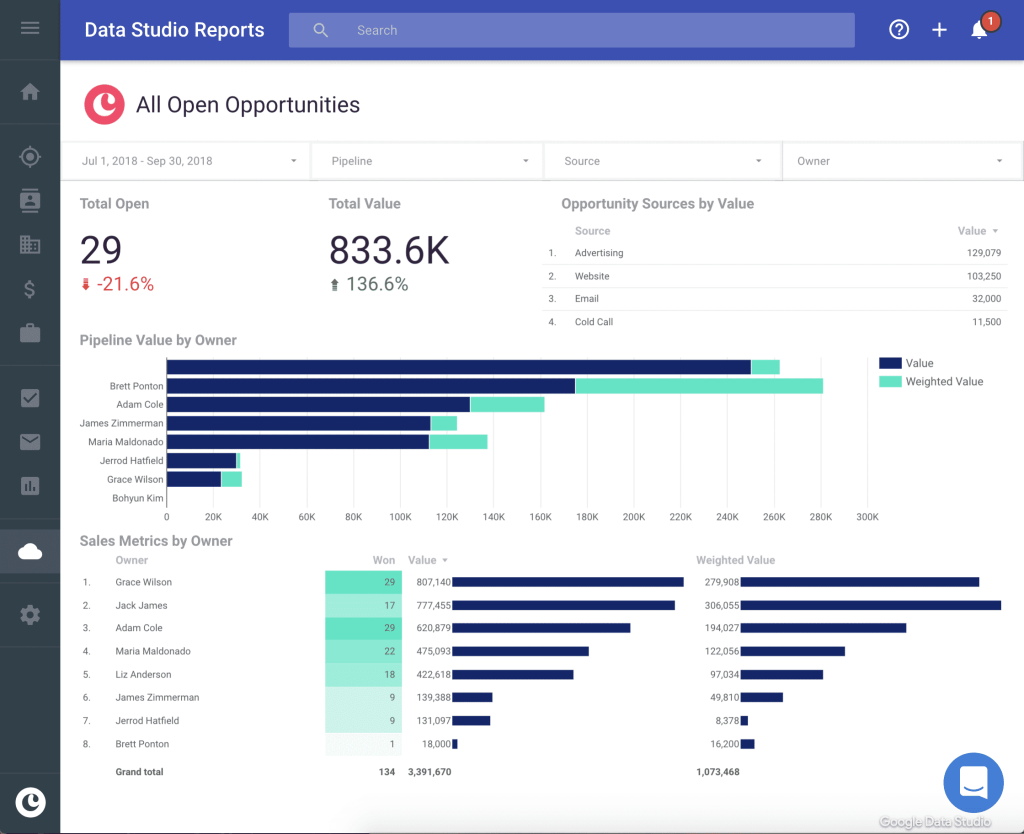Supercharge Your Business: A Deep Dive into CRM Integration with WhatsApp
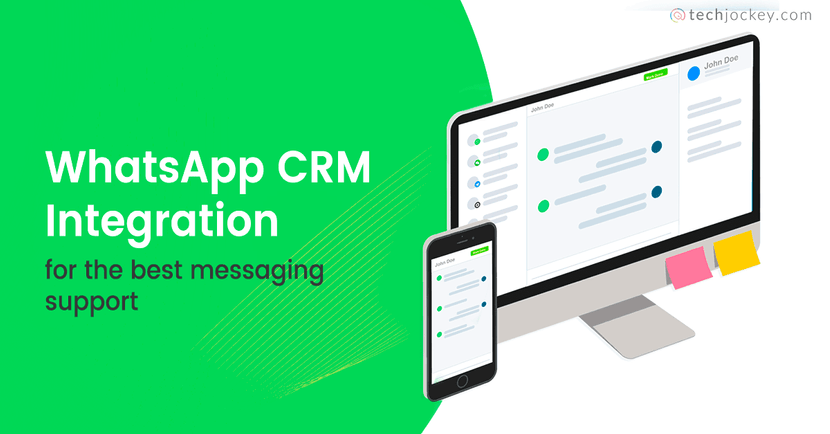
In today’s fast-paced digital landscape, businesses are constantly seeking innovative ways to connect with their customers, streamline operations, and boost overall efficiency. One of the most powerful combinations for achieving these goals is the integration of a Customer Relationship Management (CRM) system with WhatsApp, the world’s most popular messaging platform. This article delves deep into the world of CRM integration with WhatsApp, exploring its benefits, implementation strategies, and the transformative impact it can have on your business.
Understanding the Power of CRM and WhatsApp
Before we dive into the specifics of integration, let’s clarify what CRM and WhatsApp are and why they’re so crucial for modern businesses.
What is CRM?
Customer Relationship Management (CRM) is a technology that helps businesses manage their interactions with current and potential customers. It’s more than just a software; it’s a comprehensive strategy for building and maintaining strong customer relationships. A robust CRM system typically includes features for:
- Contact Management: Storing and organizing customer information, including contact details, purchase history, and communication logs.
- Sales Automation: Automating sales processes, such as lead generation, opportunity management, and quote generation.
- Marketing Automation: Automating marketing campaigns, including email marketing, social media marketing, and lead nurturing.
- Customer Service: Managing customer support interactions, including ticket management, knowledge base, and live chat.
- Reporting and Analytics: Providing insights into customer behavior, sales performance, and marketing effectiveness.
By centralizing customer data and automating key processes, a CRM system empowers businesses to improve customer satisfaction, increase sales, and drive revenue growth.
What is WhatsApp?
WhatsApp is a free, cross-platform messaging application that allows users to send text messages, make voice and video calls, and share media files. With over 2 billion active users worldwide, WhatsApp has become the go-to communication tool for billions of people. Its popularity stems from its ease of use, reliability, and the ability to connect with people across geographical boundaries.
For businesses, WhatsApp offers a direct and personal channel to communicate with customers. It allows for:
- Instant Communication: Providing immediate responses to customer inquiries and resolving issues quickly.
- Personalized Interactions: Tailoring conversations to individual customer needs and preferences.
- Rich Media Sharing: Sharing images, videos, and documents to enhance communication.
- Broadcast Messages: Sending promotional messages and updates to a large audience.
The Benefits of CRM Integration with WhatsApp
Integrating your CRM with WhatsApp unlocks a wealth of benefits that can significantly improve your business operations and customer relationships. Here are some of the key advantages:
Enhanced Customer Communication
WhatsApp integration provides a direct and personal communication channel, enabling businesses to connect with customers in real-time. This leads to:
- Faster Response Times: Respond to customer inquiries instantly, reducing wait times and improving customer satisfaction.
- Personalized Interactions: Tailor conversations to individual customer needs and preferences, creating a more engaging experience.
- Improved Accessibility: Customers can reach out to your business easily through a familiar and convenient platform.
Streamlined Sales Processes
Integrating WhatsApp with your CRM can streamline the sales process, making it more efficient and effective:
- Lead Qualification: Quickly qualify leads by engaging in direct conversations and gathering relevant information.
- Appointment Scheduling: Schedule appointments directly through WhatsApp, reducing back-and-forth communication.
- Quote Delivery: Send quotes and proposals instantly, accelerating the sales cycle.
- Order Confirmation: Provide instant order confirmations and updates, keeping customers informed.
Improved Customer Service
WhatsApp integration transforms customer service by providing a convenient and efficient channel for support:
- Instant Support: Offer immediate assistance to customers, resolving issues quickly and efficiently.
- Self-Service Options: Provide access to FAQs, knowledge base articles, and chatbots to resolve common issues.
- Ticket Management: Create and manage support tickets directly from WhatsApp, ensuring efficient issue resolution.
- Feedback Collection: Gather customer feedback and reviews through WhatsApp, improving service quality.
Increased Efficiency and Productivity
Integrating WhatsApp with your CRM automates many manual tasks, freeing up your team to focus on more strategic initiatives:
- Automated Notifications: Send automated notifications for order updates, appointment reminders, and other important events.
- Workflow Automation: Automate workflows, such as lead assignment, opportunity management, and customer onboarding.
- Centralized Data: Consolidate customer data from various sources into a single platform, improving data accuracy and accessibility.
- Reduced Manual Data Entry: Automate data entry tasks, saving time and reducing errors.
Enhanced Marketing Capabilities
WhatsApp integration opens up new avenues for marketing and customer engagement:
- Targeted Campaigns: Send targeted marketing messages and promotions to specific customer segments.
- Personalized Offers: Deliver personalized offers and recommendations based on customer preferences and purchase history.
- Interactive Content: Share interactive content, such as polls, quizzes, and surveys, to engage customers.
- Customer Loyalty Programs: Promote and manage customer loyalty programs through WhatsApp.
Implementing CRM Integration with WhatsApp: A Step-by-Step Guide
Integrating your CRM with WhatsApp may seem daunting, but with the right approach, it can be a smooth and rewarding process. Here’s a step-by-step guide to help you get started:
1. Choose a CRM and WhatsApp Integration Solution
The first step is to select a CRM system and a WhatsApp integration solution that meets your business needs. Consider the following factors:
- CRM Features: Ensure the CRM offers the features you need, such as contact management, sales automation, and marketing automation.
- Integration Capabilities: Check if the CRM integrates seamlessly with WhatsApp or offers a third-party integration solution.
- WhatsApp Business API: If you plan to use WhatsApp for business, you’ll need to use the WhatsApp Business API.
- Integration Provider: If your CRM doesn’t have a direct integration, choose a reputable integration provider that offers a reliable solution.
- Scalability: Choose a solution that can scale with your business as your customer base grows.
- Cost: Evaluate the pricing of the CRM, WhatsApp Business API, and integration solution.
Popular CRM systems that offer WhatsApp integration include:
- Salesforce
- HubSpot
- Zoho CRM
- Freshsales
- Microsoft Dynamics 365
Integration providers often offer solutions that connect various CRM systems with WhatsApp, streamlining the integration process. Research and compare different providers to find the best fit for your business.
2. Set Up Your WhatsApp Business Account
If you’re using WhatsApp for business, you’ll need to set up a WhatsApp Business account. This account provides access to features designed specifically for businesses, such as:
- Business Profile: Create a business profile with your company name, logo, contact information, and website.
- Automated Messages: Set up automated messages, such as greeting messages, away messages, and quick replies.
- Message Templates: Create message templates for common interactions, such as order confirmations and appointment reminders.
- Labels: Organize your chats with labels to easily track and manage customer interactions.
- Statistics: Access message statistics, such as sent, delivered, read, and received, to monitor your performance.
You can set up a WhatsApp Business account using the WhatsApp Business app or the WhatsApp Business API. The WhatsApp Business API is designed for larger businesses that need to manage a high volume of messages and integrate with CRM systems.
3. Connect Your CRM to WhatsApp
Once you’ve chosen your CRM and WhatsApp integration solution, it’s time to connect them. The specific steps will vary depending on the CRM and integration solution you choose, but generally involve the following:
- API Keys: Obtain API keys from your WhatsApp Business account and CRM system.
- Authentication: Authenticate your CRM and WhatsApp Business account using the API keys.
- Configuration: Configure the integration settings, such as mapping customer data fields and setting up automation rules.
- Testing: Test the integration to ensure it’s working correctly. Send test messages and verify that data is being synchronized between the CRM and WhatsApp.
Follow the instructions provided by your CRM and integration solution to ensure a smooth setup process. If you encounter any issues, consult the documentation or contact the support team for assistance.
4. Customize Your Integration
Once the basic integration is set up, you can customize it to meet your specific business needs. This may involve:
- Data Mapping: Map customer data fields between your CRM and WhatsApp, ensuring that data is synchronized accurately.
- Automation Rules: Set up automation rules to trigger actions based on specific events, such as sending automated messages when a new lead is created or an order is placed.
- Workflow Automation: Automate workflows, such as lead assignment, opportunity management, and customer onboarding.
- Custom Message Templates: Create custom message templates for various interactions, such as order confirmations, appointment reminders, and customer support responses.
- Reporting and Analytics: Set up reports and dashboards to track your WhatsApp communication performance, such as response times, customer satisfaction, and sales conversions.
The more you customize your integration, the more efficiently you can leverage the combined power of your CRM and WhatsApp.
5. Train Your Team
Once the integration is set up and customized, it’s crucial to train your team on how to use it effectively. Provide training on the following:
- Using the CRM and WhatsApp interface: Show your team how to navigate the CRM and WhatsApp interface, including how to send and receive messages, manage contacts, and access customer data.
- Using message templates: Train your team on how to use pre-defined message templates for common interactions.
- Following communication guidelines: Establish clear communication guidelines to ensure consistent and professional interactions with customers.
- Troubleshooting common issues: Train your team on how to troubleshoot common issues, such as message delivery failures and data synchronization problems.
- Data privacy and security: Emphasize the importance of data privacy and security, and train your team on how to handle customer data responsibly.
Proper training ensures that your team can utilize the integration to its full potential and provide a seamless customer experience.
6. Monitor and Optimize
After implementing the integration, it’s important to monitor its performance and make adjustments as needed. Regularly review the following metrics:
- Response Times: Track how quickly your team is responding to customer inquiries.
- Customer Satisfaction: Monitor customer satisfaction scores and gather feedback to identify areas for improvement.
- Sales Conversions: Track sales conversions and identify opportunities to optimize your sales process.
- Message Delivery Rates: Monitor message delivery rates and identify any issues that may be affecting message delivery.
- Automation Performance: Evaluate the performance of your automation rules and workflows.
Based on your findings, make adjustments to your integration settings, message templates, and communication guidelines to optimize performance and improve customer satisfaction. Continuously monitoring and optimizing your integration ensures that you are getting the most out of your CRM and WhatsApp integration.
Best Practices for CRM Integration with WhatsApp
To maximize the benefits of your CRM integration with WhatsApp, it’s important to follow best practices:
1. Obtain Customer Consent
Always obtain explicit consent from customers before sending them WhatsApp messages. This is essential for complying with data privacy regulations and maintaining customer trust. Clearly explain how you will use their data and provide them with the option to opt-out.
2. Personalize Your Messages
Personalize your messages to build rapport with customers. Use their names, reference their purchase history, and tailor your messages to their specific needs and preferences. This shows that you value their business and are committed to providing a personalized experience.
3. Keep Messages Concise and Clear
WhatsApp messages should be concise, clear, and easy to understand. Avoid using jargon or complex language. Get straight to the point and make it easy for customers to take action. Use bullet points, short paragraphs, and emojis to make your messages more engaging.
4. Respond Promptly
Respond to customer inquiries promptly. Aim to respond within minutes, if possible. This shows that you value their time and are committed to providing excellent customer service. Use automated messages to acknowledge receipt of inquiries and set expectations for response times.
5. Use High-Quality Media
When sharing images, videos, or documents, ensure they are of high quality. Use clear and professional visuals to enhance your messages and make them more engaging. Optimize your media for WhatsApp to ensure it displays correctly on different devices.
6. Segment Your Audience
Segment your audience based on their demographics, interests, and purchase history. This allows you to send targeted messages that are more relevant to their needs and preferences. Use your CRM data to create customer segments and tailor your messaging accordingly.
7. Track Your Results
Track your results to measure the effectiveness of your WhatsApp communication. Use your CRM and WhatsApp analytics to monitor key metrics, such as response times, customer satisfaction, and sales conversions. Use this data to identify areas for improvement and optimize your messaging strategy.
8. Stay Compliant with Regulations
Stay up-to-date with data privacy regulations, such as GDPR and CCPA, and ensure your WhatsApp communication practices comply with these regulations. This includes obtaining customer consent, providing opt-out options, and protecting customer data. Consult with a legal professional to ensure compliance.
Real-World Examples of CRM Integration with WhatsApp in Action
Let’s look at how businesses across various industries are successfully leveraging CRM integration with WhatsApp:
E-commerce
An e-commerce company uses WhatsApp to send order confirmations, shipping updates, and delivery notifications. They also use WhatsApp to provide customer support, answer product questions, and resolve issues. Customers can easily track their orders, communicate with customer service, and receive personalized product recommendations through WhatsApp.
Healthcare
A healthcare provider uses WhatsApp to send appointment reminders, prescription refills, and health tips. They also use WhatsApp to provide remote consultations and answer patient inquiries. Patients can easily schedule appointments, communicate with their doctors, and access health information through WhatsApp.
Real Estate
A real estate agency uses WhatsApp to share property listings, schedule property viewings, and answer client inquiries. They also use WhatsApp to provide personalized property recommendations and follow up with potential buyers. Clients can easily browse properties, schedule viewings, and communicate with their agents through WhatsApp.
Financial Services
A financial services company uses WhatsApp to send account statements, payment reminders, and fraud alerts. They also use WhatsApp to provide customer support, answer account inquiries, and offer financial advice. Customers can easily manage their accounts, receive important notifications, and communicate with their financial advisors through WhatsApp.
The Future of CRM Integration with WhatsApp
The integration of CRM with WhatsApp is still evolving, and we can expect to see even more innovative features and functionalities in the future. Here are some trends to watch:
- AI-powered Chatbots: AI-powered chatbots will become more sophisticated, enabling businesses to automate more complex interactions and provide even better customer service.
- Enhanced Personalization: Businesses will leverage CRM data to personalize WhatsApp messages even further, creating more engaging and relevant experiences.
- Integration with Other Channels: CRM integration with WhatsApp will be integrated with other communication channels, such as email, SMS, and live chat, providing a unified customer experience.
- Advanced Analytics: Businesses will have access to more advanced analytics, allowing them to track the performance of their WhatsApp communication and optimize their strategies.
- E-commerce Integration: WhatsApp will become even more integrated with e-commerce platforms, enabling businesses to sell products and services directly through WhatsApp.
As WhatsApp continues to evolve and businesses become more adept at leveraging its capabilities, the integration of CRM with WhatsApp will become an indispensable tool for driving business growth and building lasting customer relationships.
Conclusion: Embracing the Power of CRM Integration with WhatsApp
CRM integration with WhatsApp is a powerful combination that can transform the way businesses communicate with their customers, streamline their operations, and drive revenue growth. By understanding the benefits, implementing the right strategies, and following best practices, businesses can unlock the full potential of this integration and create a seamless and personalized customer experience. Embrace the power of CRM integration with WhatsApp and propel your business to new heights!

